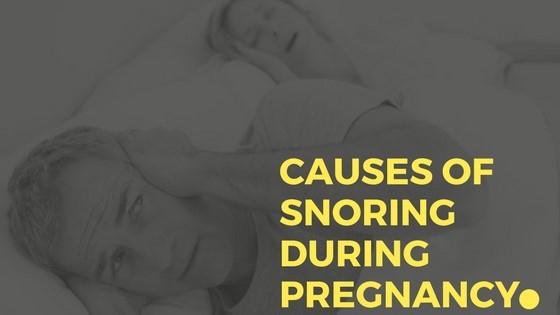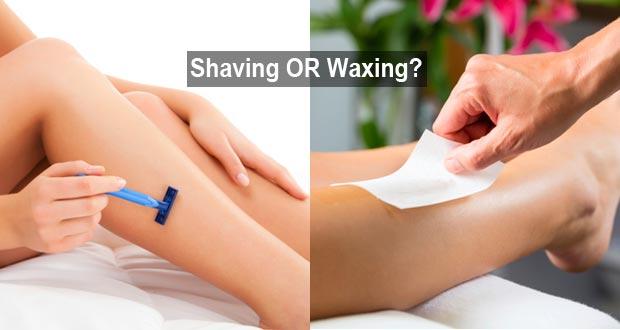Why TMJ disorders Affect Women More than Men and How to Treat it
Temporomandibular joint disorders are a common and often very painful condition. Unfortunately, women are at a greater risk than men of suffering from a TMJ disorder. Each year, roughly 10 million Americans suffer from a TMJ disorder. Astonishingly, as many as 90 percent are women in their childbearing years.
While everyone should watch for signs of TMJ disorders, young women have to be especially careful. TMJ disorders can greatly reduce your quality of life, making it difficult to talk, eat, and even sleep. TMJ disorders may also be linked to serious underlying conditions. That’s why I’m going to go over TMJ disorders, why they affect women, and how they can be treated. First, it’s important to understand what TMJ disorders are and how they can impact you and your quality of life.

TMJ Disorders Explained
The temporomandibular joint acts as a sort of sliding hinge that allows your jaw to open, close, and move around. The joint connects your jaw to the rest of your face, and consists of a complex system of bones, muscles, and cartilage. Unfortunately, TMJ disorders can cause pain and improper functioning in your joints and the muscles connected to them.
When you’re suffering from a TMJ disorder, your jaw is not functioning properly. Often, you’ll experience pain in the neck, face, and jaw, especially if you’re chewing or talking. The joint may be inflamed, damaged, swollen, or degrading, among other things. Unfortunately, TMJ disorders are complex and unique, and each individual case is different.
Wondering if you’re suffering from a TMJ disorder? It is important for everyone to watch out for symptoms. Unfortunately, since women are more prone to suffering from a disorder, it’s especially important to watch for symptoms. Let’s look at some tell tale signs that you might be suffering from a TMJ disorder.
Common TMJ Symptoms For Women to Watch Out For
Pain in the joint and jaw is perhaps the most common symptom. Unfortunately, however, the pain caused by a temporomandibular joint disorder is not limited to just your jaw. For example, strain your face muscles may be producing tension headaches. TMJ disorders have also been linked to eye and ear pain. Further, TMJ disorders have been linked to dental issues, such as tooth pain.
Each TMJ disorder is unique and the symptoms experienced may not always be the same. That’s largely due to the fact that TMJ disorders can be caused by a large number of factors and conditions, some of which I’ll highlight later.
Still, these are some common symptoms that you should watch fore:
- Pain in the jaw, especially while chewing or talking.
- Aching pain in the neck, face, shoulders, or cranium.
- Tension headaches, especially with accompanying pain in the facial muscles
- Teeth grinding or clenched jaw
- A popping sound when you move your jaw
- Swelling on one or both sides of your face
- Pain in your ears or eyes
As you can see, TMJ disorders can cause a lot of pain in many different areas. Unfortunately, this pain may make life difficult. For example, you may struggle to eat or speak at work. You may also have trouble sleeping.
So why are women more prone to suffering from TMJ disorders? Several factors appear to make women more prone to the condition. Let’s look at some.
Why Women Are More Likely to Suffer From a TMJ Disorder
First, TMJ disorders can be caused by a wide range of factors. And while much progress has been made in determining the root causes of the disorder, we still have a lot to learn and discover. That being said, several factors are believed to make women more likely to suffer from a TMJ disorder.
Hormones, for example, may play a big role. Research has found that estrogen, the female sex hormone, may be linked to Osteoarthritis, which can lead to joint failure. Research suggests that estrogen deficiencies increase the likelihood of Osteoarthritis, which may be the cause of your TMJ disorder.
Rheumatoid arthritis has likewise been linked to TMJ disorders. Unfortunately, women are often more adversely affected by this type of arthritis. Rheumatoid arthritis, in particular, seems to strike women while they are younger and is often more severe.
Vitamin deficiencies may also leave your joints starved of vital nutrients. Turns out, women are more likely to suffer from some forms of vitamin deficiency. For example, women are more likely to experience low levels of magnesium. It’s possible that vitamin deficiencies are linked to menstruation.
Stress has likewise been linked to TMJ disorders. Teeth grinding and jaw clenching, in particular, can damage your temporomandibular joint. Stress and anxiety may cause you to clench or grind your teeth. While men and women tend to suffer from roughly average levels of stress, women are more likely to report physical symptoms.
Further, women are more likely to suffer from high levels of stress, with 28 percent experiencing a “great deal”. Only 20 percent of men report the same. Nearly half of women report that their stress has increased over the last of five years, while just one in four surveyed reported an increase. Add all of this up, and it seems plausible that women are more likely to clench or grind their teeth, which in turn can damage their jaws.
Some also believe that the collagen that holds the joint disk together is different in men and women. If so, it’s possible that the collagen found in women is somehow linked to the increased propensity of TMJ disorders. Research has found that sex hormones, which differ greatly in men and women, has an impact on collagen and protein content. However, this research was performed on rats, not humans.
Long story short, there are a wide variety of factors that seem to make women more prone to suffering from TMJ disorders. Fortunately, treatment may be able to provide short-term pain relief and long-term healing. Let’s look at some ways you can treat TMJ-related pain yourself, and also professional treatment options.
Home Treatments Women Can Try
First, if the pain is severe or getting worse, you may want to seek professional help immediately. Prompt treatment can save you from a lot of pain and later hassles. That being said, there are some home treatment methods you can try.
Over-the-Counter pain medications, such as ibuprofen, may provide temporary pain relief. If the pain is severe, however, OTC drugs may, at best, simply dull the pain. OTC anti-inflammatory drugs, likewise, might reduce swelling.
Often, a more effective method to reduce swelling and pain is to use a simple ice pack or cold compress. Be sure to be mindful of your skin and to not overexpose it to cold surfaces. Moist hot compresses may also provide pain relief.
If you’re suffering from a TMJ disorder, or even just mild jaw pain, it’s also wise to avoid hard foods and candies. Try chewing on some softer foods to see if your jaw can heal itself. Avoid “chewy” food as well.
Further, if you’re stressed, it may be causing you to clench or grind your teeth. So why not try some meditation techniques or yoga? A bit of stress relief can help not only with TMJ disorders, but all the other complications that come along with stress, such as sleep insomnia.
Massaging your jaw and engaging in jaw exercises may also improve your condition. Both can be done from the comfort of home, however, it’d be smart to first talk to a professional to understand what exercises you should undertake and how you should massage your jaw.
What Professional Treatment Provides
First, a TMJ disorder specialist will be in a better position to discover the root cause of your TMJ disorder. Once she knows what’s causing your pain, she’ll be able to prescribe effective treatment. Let’s look at some of the treatment options.
Over-the-Counter medications may reduce swelling and pain. However, if they’re proving ineffective, you may need to take a prescription anti-inflammatory or pain relief drugs. These more powerful medications will be able to provide better pain relief and reduce swelling more effectively. But, you’re going to need a medical professional to sign the script.
Likewise, the right massages and exercises can also help. Fortunately, a professional can show you how to do both. A professional can also provide in-office physical therapy that may reduce pain, and help to ensure proper alignment. Once you’ve been properly taught, you’ll be able to engage in many of the exercises on your own.
Another option is to use advanced 3-D imaging and CT scans to closely examine the jaw. TMJ disorders are sometimes caused by a misalignment in the jaw. If that’s the case, bite orthotics can be custom designed to realign your jaw motions. This could provide lasting pain relief.
There are other treatments available as well. In order to determine the right treatment, it’s first important to discover what’s causing the TMJ disorder in the first place. Fortunately, a TMJ specialist can do just that.






